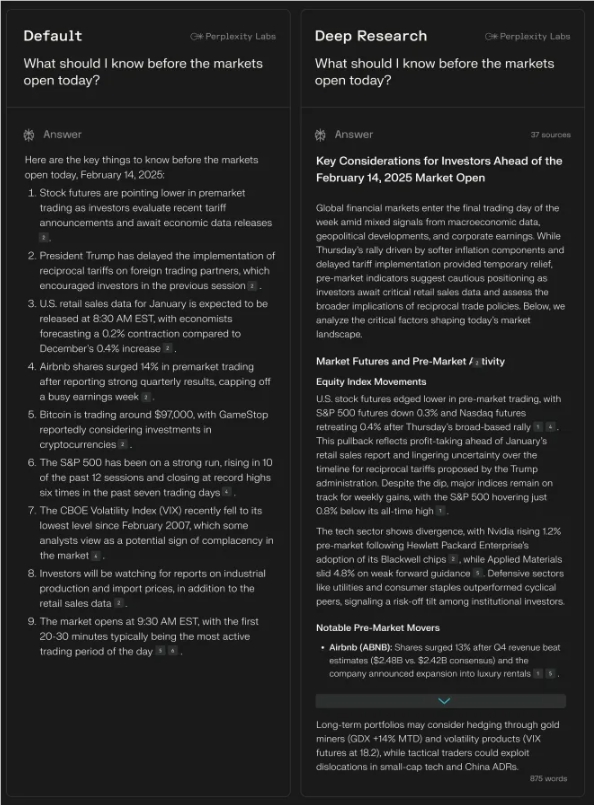Recently, the field of artificial intelligence has caused another wave. Perplexity announced the launch of its new "in-depth research" tool to officially join this AI competition led by technology giants. The release of this innovative tool follows Google and OpenAI. The three major technological forces have chosen the name "Deep Research" to provide professional users with more accurate and in-depth research solutions, marking artificial intelligence. Applications in the research field have entered a new stage.
Perplexity's "in-depth research" function shows strong cross-platform adaptability, which can not only be used directly on the web side, but also plans to be integrated into applications of mainstream operating systems such as Mac, iOS and Android in the near future. Users only need to select the "In-depth Research" option in the search interface, and the system will automatically generate a research report with rigorous structure and detailed content. This report not only supports PDF export, but can also be shared in the form of Perplexity exclusive page, providing users with great convenience.

The core competitiveness of this tool lies in its outstanding research capabilities. Perplexity officially stated that the "in-depth research" function can simulate the thinking patterns of human researchers, conduct iterative searches, document reading and strategic planning, just like a professional researcher is exploring in depth. In the AI benchmark test of "The Last Exam for Humanity", Perplexity stood out with a score of 21.1%, far surpassing competitors such as Gemini Thinking (6.2%) and Grok-2 (3.8%), although it is still slightly inferior to OpenAI's 26.6 %, but has shown strong technical strength.
In terms of business model, Perplexity has adopted a completely different strategy from OpenAI. Unlike OpenAI's $200 per month Pro subscription, Perplexity's "In-depth Research" feature is currently available for all users for free. Although there is a daily query limit for free users, paid users can enjoy high-quality services with unlimited query times. In addition, Perplexity also has the advantage in task processing speed, with most research tasks being completed in three minutes, while OpenAI takes between 5 and 30 minutes, which provides time-sensitive users with a more efficient choice.
Through comparative analysis of major in-depth research products, Perplexity, OpenAI and Google each show unique advantages: Perplexity has become an ideal choice for casual researchers with its excellent speed and convenience; OpenAI has an analysis depth in enterprise-level applications and Google has maintained its leading position; with its perfect ecosystem, it has performed the most outstandingly in the integration of productivity tools. This differentiated positioning provides users with more diversified choices.
However, despite the huge potential of these AI research tools, there is uncertainty in their long-term impact. The Economist recently pointed out that some limitations of OpenAI's "in-depth research" function may also exist in Perplexity's tools. Over-reliance on AI assistants for research may weaken the cultivation of human innovative thinking, and this potential risk is worthy of deep thought by all users and developers.